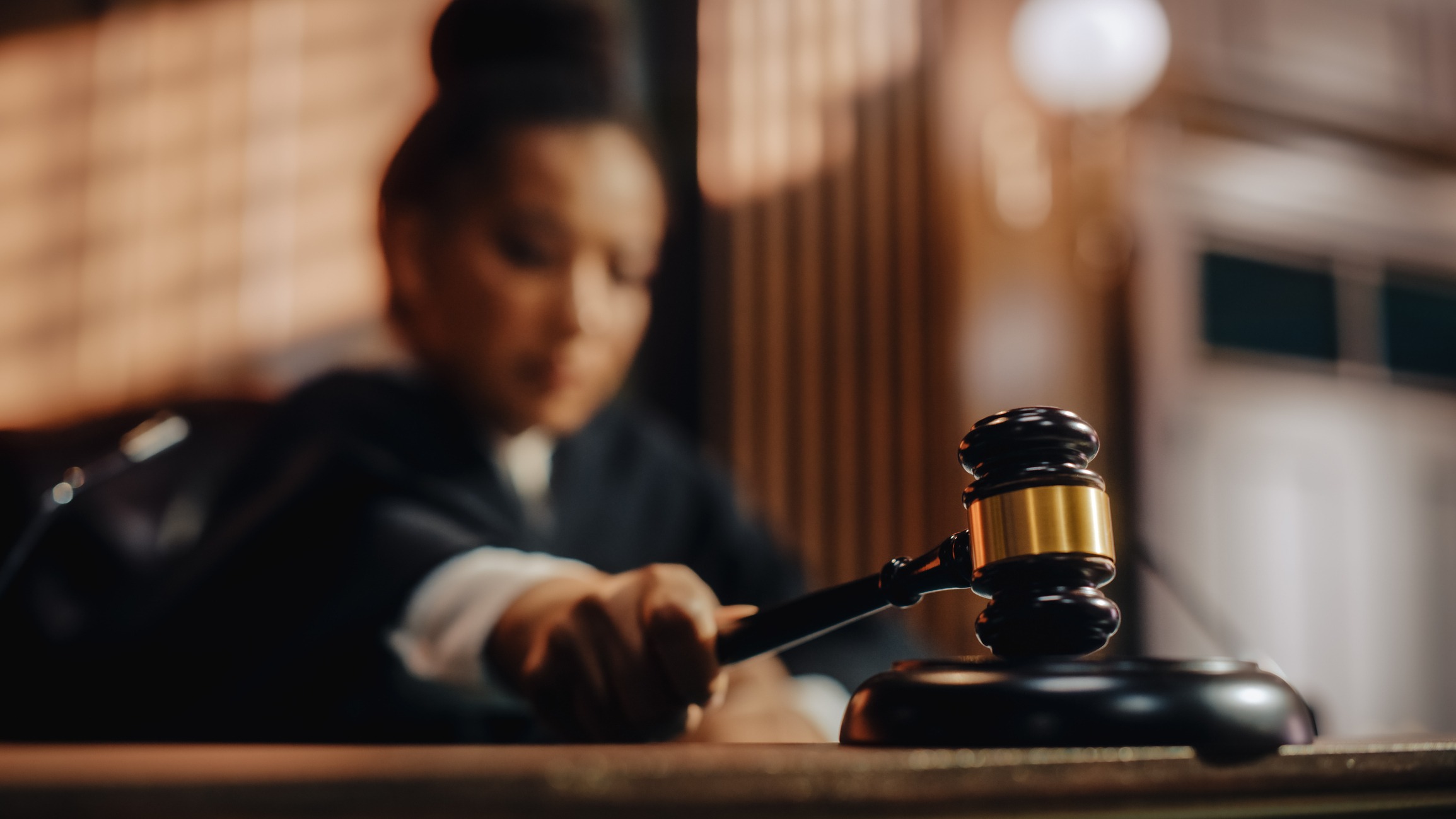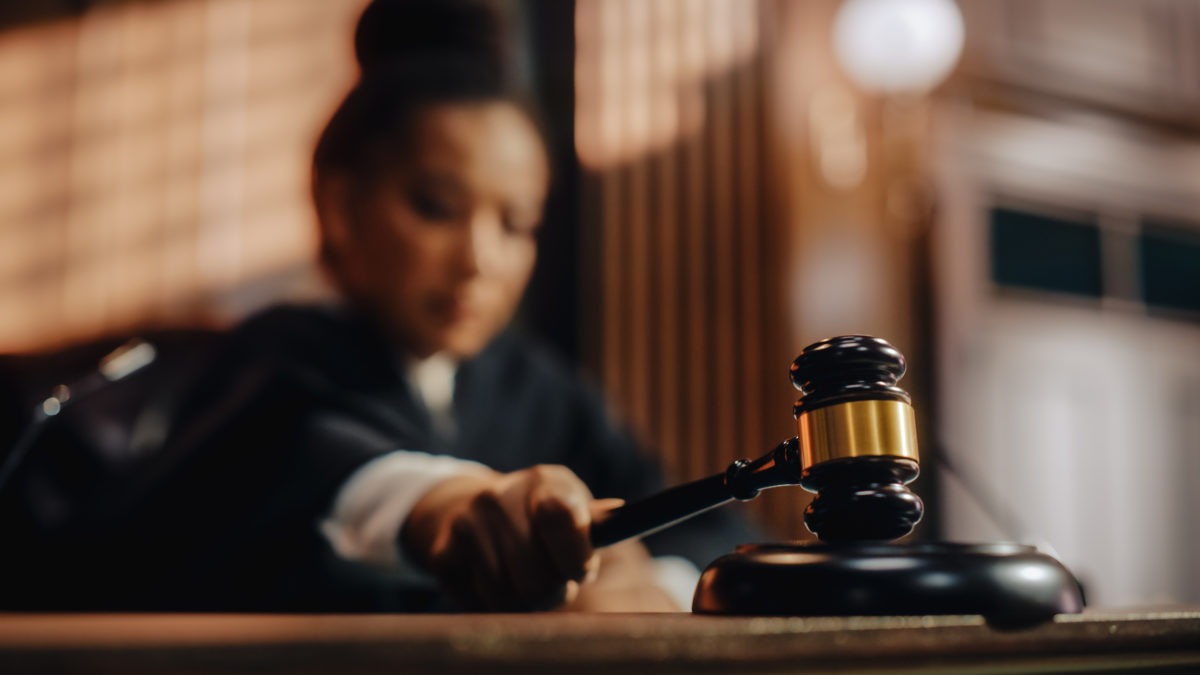Newsletter
Over-Reliance on Plea Deals is Damaging the Criminal Legal System
gorodenkoff / iStock by Getty Images Over-Reliance on Plea Deals is Damaging the Criminal Legal System by Nneka Ewulonu It’s easy for the average American to envision a courtroom trial. Shows like “Law and Order” inundate us with fictional depictions of trials—from the thud of a gavel to the inquisitive eyes of a jury—with an […]


Over-Reliance on Plea Deals is Damaging the Criminal Legal System
by Nneka Ewulonu
It’s easy for the average American to envision a courtroom trial. Shows like “Law and Order” inundate us with fictional depictions of trials—from the thud of a gavel to the inquisitive eyes of a jury—with an underlying assumption that these depictions reflect reality to some degree. Unfortunately, however, trials are largely a myth in the criminal legal system. Most criminal defendants never experience the constitutional right-turned-luxury of a trial by jury: 94 percent of federal criminal convictions and 97 percent of state criminal convictions are the result of guilty plea deals.
Plea deals certainly can have benefits. They can be an opportunity for the defendant to receive a more favorable sentence than they would receive if found guilty through trial. And by forgoing trial, the resolution of the case often comes much faster than it otherwise would. But the over-reliance on plea deals does far more harm than good by making it unlikely that defendants ever face a real trial by their peers.
This reality falls short of the rights and protections defendants are constitutionally owed. The Sixth Amendment states that criminal defendants have the right to a speedy and public trial, an impartial jury, and assistance of counsel, among other rights. In the 1963 case Gideon v. Wainwright, the Supreme Court unanimously held that the Sixth Amendment requires states to provide a defense to criminal defendants who cannot afford their own counsel. Clarence Earl Gideon was accused of robbing a Florida poolroom of wine and cash but was too poor to afford a lawyer. When Gideon requested that the state appoint him one, a local judge told him that the state only appointed public defenders in death-penalty cases and denied his request.
When Gideon’s case made it to the Supreme Court, his appointed lawyer gave a legendary argument, reasoning that even criminal defense attorneys hire lawyers to represent them, despite having far more institutional knowledge than the average defendant. By ruling in Gideon’s favor, the Court created new and expanded pre-existing public defender programs throughout the country.
But, since then, plea deals have become the backbone of criminal defense. Despite the constitutional requirement to provide indigent defendants proper legal representation, public defense offices across the country are wildly underfunded and understaffed. One 2017 study in Louisiana found that public defenders caseloads were five times higher than the recommended workload. Similarly, public defenders in Colorado, Rhode Island, and Missouri have two to three times the recommended caseload. A report released in January 2022 by the American Bar Association suggested that Oregon only has one third the public defenders it needs. As a result, public defenders at times only have minutes to spend with each client, far less time than necessary to prepare a case for trial.
Like most of the criminal legal system, plea deals are plagued with racism and other forms of bigotry. Because the prosecution makes the first offer of a plea deal, implicit racial bias impacts the kinds of pleas offered to white defendants and defendants of color. A 2017 study by researchers at Loyola Law School Los Angeles found that white defendants charged with misdemeanors are 74 percent more likely than Black defendants to have the most serious charges—those with the risk of incarceration—dropped. Gender inequality also intersects with racial bigotry: white women tend to receive the most lenient plea treatment, according to a 2020 report by the Vera Institute of Justice.
But public defenders are often too overworked to overcome the system’s bigotry. A lawsuit recently filed in Oregon alleges that the state’s public defender crisis disproportionately hurts Black defendants, who are more likely to need court-appointed defense counsel. Oregon’s issues are not unique.
An over-reliance on plea deals means the old adage of “innocent until proven guilty” has effectively been replaced with “innocent until pleading guilty.” In fact, innocent people regularly plead guilty—different studies have estimated that at least 11 percent of criminal exonerations since 1989 came from innocent people pleading guilty to crimes they did not commit.
Perhaps the most obvious solution to this issue is prison abolition. Black and Hispanic defendants can’t be at a higher risk of facing incarceration if jails and prisons did not exist. But while prison abolition remains a far-off hope, a more tangible and immediate solution starts with hiring more public defenders, reducing public defenders’ caseloads, and allowing them the chance to work more intimately with their clients. Unless changes are made, bad plea deals will continue to plague our legal system, to the detriment of all of our constitutional rights.
In the news
People incarcerated in New York state prisons were forced to perform dangerous jobs for penny wages during the height of the pandemic, including asbestos abatement and removal of lead paint, according to New York State Department of Corrections and Community Supervision data obtained by The Intercept. [Akela Lacy / The Intercept]
The Daily News reports that Edgardo Mejias, 39, has become the 19th person to die in New York City jails this year. Mejias had been arrested for allegedly stealing perfume, and had been at Rikers Island since Oct. 2. [Graham Rayman / New York Daily News]
A Michigan judge ordered a lower court to dismiss the misdemeanor charges filed against the state’s former governor, Rick Snyder, for his role in the Flint water crisis. Snyder had been charged with two counts of willful neglect of duty by a public official. [Arpan Lobo / Detroit Free Press]
Jamal Crummel developed hypothermia while detained in Pennsylvania’s Dauphin County Prison. He was hospitalized for nearly a month and then returned to the same jail. Crummel developed hypothermia again and died. [Joshua Vaughn / PennLive]
The Floresville Police Department in Texas hired disgraced former San Antonio police officer Matthew Luckhurst as a reserve officer. While working in San Antonio, Luckhurst gave a homeless person a sandwich filled with dog feces. [Eric Dexheimer / San Antonio Express-News]
ICYMI — from The Appeal
Christina Lynch is trying to survive on the sex offender registry. As Lynch writes, it’s nearly impossible: “Sex offender registries are debt traps that cause mass homelessness and mass incarceration.”
Fourteen people detained by the Fulton County Sheriff in Georgia have died this year—more than four times the number of people who died in custody all of last year. But local leaders are considering cutting funding to a program that helps keep people out of jail.
Pieper Lewis—a teenage sex-trafficking survivor who stabbed her abuser to death in self-defense—got the “compassionate” sentence of community supervision. But, as writer Mon Mohapatra argues, “Simply being ‘better than prison’ is not an effective measure of justice, and it is even less so when we recognize that ‘alternatives’ are leading millions—like Pieper Lewis—back toward incarceration.”
That’s all for this week. As always, feel free to leave us some feedback, and if you want to invest in the future of The Appeal, please donate now and your donation will be tripled here.
